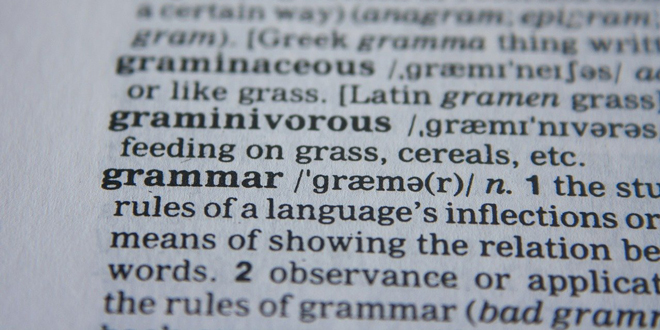
For an appraiser, the report is the product. It is the culmination of your experience, expertise, and skills, coalescing in a multi-page work of art and science. The appraisal report, and all that goes into developing it, after all, is what your client pays for. Moreover, untold numbers of people who have the ability to affect your career and practice may read it, maybe even for years to come. In light of that, do you think the quality of your written report matters? For the sake of context, I am not referring to the quality of your analysis; I am referring to the quality of your writing.
In light of the importance of our appraisals, why would one produce anything less than a high quality, well developed, and correctly written appraisal report? Simply put, providing a good quality product and service is congruent with good business etiquette. Yet, all too often, we see appraisals with a litany of basic writing problems that cause dissonance in the mind of the reader. Although the analysis may be sound, confidence in the appraiser’s competence comes into question.
The most common quality issues unrelated to appraisal methodology, I see, include spelling, punctuation, capitalization, sentence structure, and general grammar. For instance, we standardly read reports in which every letter in every word is capitalized. Why is that? Typically, outside appraisal report preparation, writing in all caps is the written communication equivalent to YELLING. Why would one arbitrarily yell at the reader, or intended user, of the report?
We frequently see appraisal reports with run-on sentences, sentence fragments, improper use of words (for example: their, there, they’re), etc. Sentences ought to not end with a preposition. Why say, “Where is the house at?” when you can simply, and correctly, say “Where is the house?” This seems straight forward enough, but these are common writing errors.
Most appraisal software packages include spelling and punctuation checks. That tool is there for a reason… Why not use it? It will take only seconds to complete and will help you avoid typos which will, invariably, give the reader cause to question the quality of your work. Proofread your templates every once in a while. When you write additional commentary to fill the gaps in template language, proofread that too. I find it helpful to take the things I’ve written, set them aside for part of a day, and then revisit for proofreading. A fresh set of eyes, whether yours or someone else’s, can make all the difference. I also find it helpful to read, aloud, what I wrote. Doing so can make it easier to find sentence structure problems and punctuation errors.
I know, your AMC clients demand quick turn times; therefore, you don’t have the time to let that report roast for part of a day. Obviously, you have to make a business decision. Is turning reports fast, sans your own QC process, worth the reputational risk that comes with sloppy work? Can you reprioritize your calendar to allow a bit more time so that a report can sit and await a clerical review? What if your own QC check helps you uncover items that would have caused revision requests? You might even end up saving yourself and your client some time by allowing some margin to dot the “I”s and cross the “T”s.
If writing isn’t your strong suit, welcome to the club. The best class I have ever attended that addressed writing skills was Appraisal Institute’s Advanced Residential Applications and Case Studies and Advanced Residential Report Writing. The instructor was intentional, and darn near fanatical, with her teaching and expectations of proper writing techniques. I am not here to stump for AI, but I am here to point you, my peers, in the direction of practical and useful information that will help you elevate your communication and report writing skills. Our clients expect it and USPAP requires it. Remember, even a series of small errors can lead to an unintentionally misleading report, which can have non-trivial ramifications on your business and future.
So, take care in preparing a well written, properly punctuated, correctly capitalized, and spell-checked report. Your clients will appreciate it and the readers will more likely understand your analysis. In addition, even if they all disagree with the outcome of your appraisal, they will be less likely to question your professionalism and competence.
Have any comments or would you like to submit content of your own? Email comments@appraisalbuzz.com.







